Public Engagement News
Pages
 Terri Friedline Named a U-M Mentor Fellow for Public Engagement
Terri Friedline Named a U-M Mentor Fellow for Public EngagementAssociate Professor Terri Friedline has been selected for the U-M 2020 cohort of the Public Engagement Fellowship. Mentor fellows are faculty with more extensive experience in public engagement and will work closely with Fellows to provide guidance, connections and mentorship based on their own expertise and networks. Although planning for the Public Engagement Fellowship started before COVID-19, the current situation highlights how important programs like these are in preparing scholars for engagement - both in moments of crisis and over the long-term.
- April 20, 2020
- Learn more »
 Stimulus Checks Might Not Reach Those Who Need Them Most
Stimulus Checks Might Not Reach Those Who Need Them MostAssociate Professor Terri Friedline discusses financial system reform and consumer protections to ensure that people and communities have access to safe and affordable financial products and services during the Coronavirus Pandemic.
- April 9, 2020
- Learn more »
 Poverty Solutions with Kristin Seefeldt Publish COVID-19 Pandemic Guide
Poverty Solutions with Kristin Seefeldt Publish COVID-19 Pandemic GuideThe Michigan COVID-19 Pandemic Resource Guide, published by U-M Poverty Solutions aims to make sure the people who would benefit most from these policy changes are able to take advantage of them.
“The guide demonstrates Poverty Solutions’ commitment to action-based research that is responsive to community needs,” said Kristin Seefeldt, Poverty Solutions associate faculty director and an associate professor of social work and public policy.
- March 31, 2020
- Learn more »
 Terri Friedline’s Research Informs the Automatic BOOST to Communities Act
Terri Friedline’s Research Informs the Automatic BOOST to Communities ActAssociate Professor Terri Friedline’s research, “Mapping Financial Opportunity” can be used to inform the Automatic BOOST to Communities Act drafted by Rashida Tlaib, U.S. Representative for Michigan's 13th congressional district. In response to the coronavirus crisis, the proposed legislation would immediately provide a U.S. debit card preloaded with $2,000 to every person in America, which could be transitioned into a universal federal or postal banking account. Each card would be recharged with $1,000 monthly until one year after the end of the coronavirus crisis. Friedline's research focuses on universal bank account access and she maps post office locations to inform the potential for postal banking.
- March 23, 2020

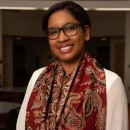
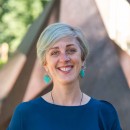
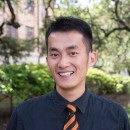 Inaugural Curtis Center Signature Program Awardees Announced
Inaugural Curtis Center Signature Program Awardees AnnouncedIn February, the Vivian A. and James L. Curtis School of Social Work Center for Health Equity Research and Training announced the three inaugural awardees of the Curtis Center Signature Programs Initiative (SPI). SPI is a launch program for Michigan Social Work faculty to develop new or further existing health equity research programs.
- March 23, 2020
 Joe Ryan Shares How Data Improves Outcomes for Vulnerable Children
Joe Ryan Shares How Data Improves Outcomes for Vulnerable ChildrenProfessor Joe Ryan presented his findings on how data can drive policy changes and improve outcomes for vulnerable children and families at the Wolverine Caucus. The Wolverine Caucus is a forum held in the state capital where alumni, policymakers, and the public can hear from U-M faculty experts and engage discussions on topics that impact society.
- February 3, 2020
- Learn more »
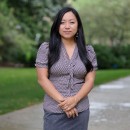 Missing Migrants of the Mediterranean
Missing Migrants of the MediterraneanAssistant Professor Odessa Gonzalez Benson leads an action research team from U-M’s School of Social Work, School of Information, Taubman College of Urban Planning and Architecture, and Tunisia-based The Association La Terre Pour Tous who developed “Missing Migrants of the Mediterranean.” This exhibition shares stories, voices and hopes of “missing migrants” and their families, using graphic documentation and data visualization works. Through the exhibit, the team hopes to synthesize social justice, advocacy, design and technology in the form of public scholarship. "We hope to synthesize social justice and advocacy with design and technology in the form of public scholarship," stated Gonzalez Benson.
Weiser Hall Art Gallery
500 Church Street, 5th Floor
Thursday, 2/7/2020 - Wednesday, 3/25/2020- January 29, 2020
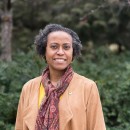 Trina Shanks Discusses Support for a Regional Transit System at the Detroit Policy Conference
Trina Shanks Discusses Support for a Regional Transit System at the Detroit Policy ConferenceTrina Shanks, professor and director of the Michigan Social Work Community Engagement, is a panelist at the Detroit Regional Chamber’s 2020 Detroit Policy Conference. Local and national leaders will highlight the work underway, new ideas, opportunities and challenges that will define the next 10 years for the Detroit region. Her panel will discuss corporate support for a reliable regional transit system.
- January 29, 2020
- Learn more »
 Rogério M. Pinto Panelist at the Nuclear Futures Workshop
Rogério M. Pinto Panelist at the Nuclear Futures WorkshopProfessor Rogério M. Pinto is a panelist for “How can the nuclear sector pivot and become a leader in inclusion, diversity and community-based practices?” at the Nuclear Futures Workshop in Washington D.C. The workshop, sponsored by U-M Fastest Path to Zero, brings together experts in energy, climate and community-oriented issues critical to any community which is considering a new generation nuclear power plant.
- January 6, 2020
- Learn more »
 Ayesha Ghazi Edwin Appointed to Michigan Asian Pacific American Affairs Commission
Ayesha Ghazi Edwin Appointed to Michigan Asian Pacific American Affairs CommissionLEO Lecturer Ayesha Ghazi Edwin has been appointed by Governor Gretchen Whitmer to serve on the Michigan Asian Pacific American Affairs Commission. The commission’s vision is to fully engage Asian and Pacific Americans in Michigan.
- December 23, 2019
- Learn more »